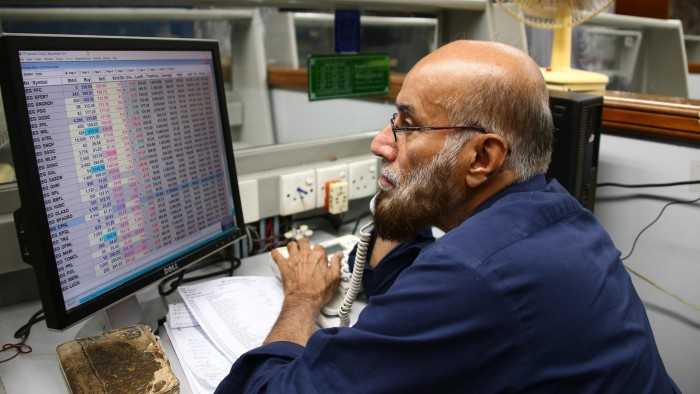Stay informed with free updates
Simply sign up to the Private equity myFT Digest — delivered directly to your inbox.
Big private equity investors are taking advantage of a flood of capital from wealthy individuals to cash out their buyout fund holdings at higher prices despite the industry’s years-long downturn.
Some of the largest evergreen vehicles, which allow retail investors to deposit and withdraw cash at regular intervals, have bought swaths of private equity fund stakes from institutional investors seeking liquidity after a dearth of distributions.
That extra demand has helped prop up prices for stakes in private equity funds on the secondary market, even as some institutional investors have cooled on investing in new funds because of the difficulties buyout firms have had exiting investments and returning cash to their backers.
“There’s a lot of money flowing into these [evergreen] vehicles,” said one leading adviser, which they said were under pressure to deploy it quickly.
Stakes in existing funds — so-called secondaries — are more flexible to buy and sell than direct investments in companies, making them attractive to evergreen fund managers because their investors deposit cash upfront and can regularly withdraw it.
Hamilton Lane has invested about half of the more than $9bn it has raised across two evergreen private equity vehicles into secondaries. StepStone’s $4.3bn vehicle for US investors, which focuses mostly on private equity alongside some real assets and debt, has deployed 80 per cent of its capital into secondaries.
“A lot of money is raised on a monthly basis and the funds want to invest it immediately,” the adviser said.
Retail funds have offered higher prices for secondary stakes than others in the market. That has helped the buyout sector to weather a challenging period by making it easier for institutional investors to cash in holdings, at a time when dealmakers are unwilling or unable to sell the underlying assets.
Evergreen vehicles paid on average 4 per cent more last year for fund stakes than traditional buyers, according to survey data from advisory firm Campbell Lutyens, while investment bank Evercore said the influx of retail capital had “bolstered pricing”.
“The fundraising on evergreen vehicles can be unpredictable,” said Immanuel Rubin, co-head of secondaries at Campbell Lutyens. “Unless you deploy [the cash] quickly it can create a drag on your returns.”
Buying secondaries also allows evergreen fund managers to show instant returns. They tend to be priced at a discount to their net asset value (NAV), but the buyer can mark them up to their previous NAV immediately after purchase.
Signs that evergreen vehicles were paying more for secondaries could mean the vehicles were buying “higher quality portfolios”, said Euan Finlay, head of Europe, the Middle East and Africa at Partners Capital, a private equity investor. But he said it could alternatively mean they were tolerating slightly lower returns.
“The incentive structure of needing to put money to work quickly to feed the beast and get an early attractive return” could lead them to price their bids using a lower long-term target, Finlay said.
But, he added, evergreen vehicles could still end up returning similar amounts of cash as drawdown funds because they could fully invest the cash for longer.
Bob Long, chief executive of private wealth at StepStone, said the firm’s evergreen funds usually invested in secondaries alongside its institutional investors, meaning they were getting “the same deals, the same price”. He added that only a small proportion of the returns from StepStone’s wider secondaries business came from the initial purchase discount.
Some evergreen vehicles have also deployed cash into continuation funds — purpose-built vehicles increasingly established by private equity firms to buy companies from themselves.
Continuation vehicles can be used to enable buyout firms to hold on to their best companies. But they can also be deployed to generate cash for a fund’s original backers from assets that dealmakers cannot otherwise sell at their desired valuations.
As the backlog of unsold assets mounts, an increasing number of challenged holdings could end up in continuation funds — and ultimately with retail investors through evergreen vehicles.
There was “enormous net asset value” of companies that buyout managers had recently struggled to exit, said Finlay of Partners Capital.
“Where does it all go?” he said. “I think a lot . . . will go into continuation vehicles and in time, maybe, it finds its way into evergreen vehicles.”
Read the full article here




